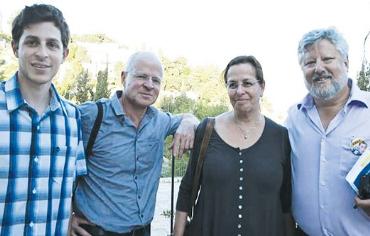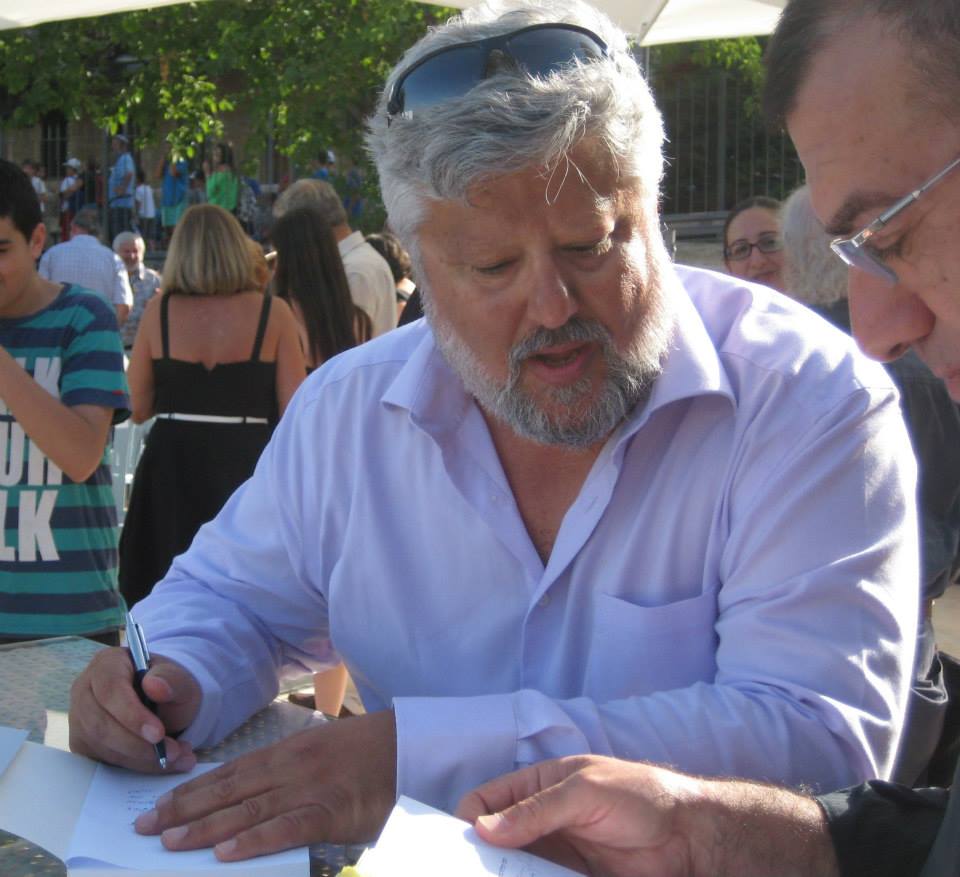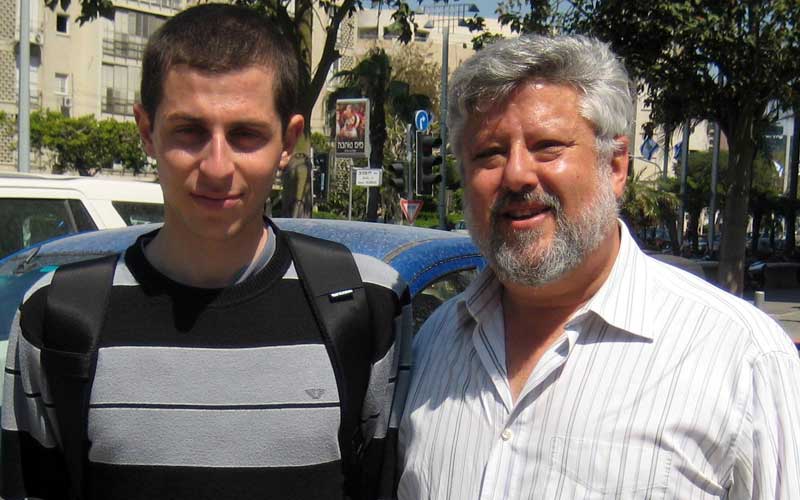Gershon Baskin remains optimistic. He believes that Israeli-Palestinian peace is possible, the conflict is solvable and that negotiations can succeed only via a secret direct back channel. That is why he continues his efforts.
The Negotiator: Freeing Gilad Schalit from Hamas, by Gershon Baskin (The Toby Press, $24.95).
Memoir-writing is tricky, because writers clean up their own act, consciously or unconsciously, leaving out their errors, let alone their sins.A brilliant analyst like Henry Kissinger superbly dissects the history of European diplomacy or the differences between Woodrow Wilson and Teddy Roosevelt, but he often skips over his own role in embarrassing or damning parts of a historical record. And we really need to examine those parts.
That same problem is true even when dealing with lesser mortals with lesser egos, like Gershon Baskin and his account of the Israeli deal to release Israeli soldier Gilad Shalit.
One senses personal sincerity and much naiveté in Baskin’s tale of how he helped gain freedom for IDF Corporal Shalit, but readers will not escape Baskin’s need to justify himself and his role at every turn. His ego is not as monumental as Kissinger’s, but it is in our face from page one.
Baskin admits that Benjamin Netanyahu and Hamas made the deal, but without him, he writes, there would have been no deal. Indeed, there could have been a deal years earlier, if only everyone had listened to him.
“I used my experience, knowledge, and ideas to develop contacts and convince officials that a deal was possible,” he writes. “The deal could have been made years before. Gilad Schalit [sic] should not have languished all that time in Gaza.”
Also featured on nearly every page is Baskin’s strongly accommodating posture vis a vis the Palestinians, the PLO and Hamas. Reading his memoir is much more like reading a memoir by Jimmy Carter than cogent historical analysis by Kissinger.
Baskin’s tale of events is instructive—for its often opaque and non-judgmental style and for its less-than-complete telling of the truth.
“Palestinian fighters ambushed the Israeli army base at Kerem Shalom,” he writes, suggesting “fighters” attacked an occupying army’s base. That’s not true. The Israelis were blown up from underneath the ground while standing inside Israeli territory. All of this happened after Israel had totally withdrawn from Gaza.
After Shalit’s abduction and the murder of two of his IDF comrades, Pavel Slutzker and Hanan Barak, Israel struck Hamas in Gaza but failed to rescue Shalit. Hamas said it would be willing to show signs that Shalit was alive in return for the release of all 350 Palestinian women and children held by Israeli authorities.
Prime Minister Ehud Olmert refused. Baskin says, “The Israeli government was clearly not interested in a negotiated endgame for the release of Schalit.”
Baskin takes an absolutist view on hostage talks, strongly suggesting that almost all terrorist demands need to be met to gain release of hostages. He believes Israel owes an unbreakable debt to its soldiers to gain their release at all costs.
“If Hamas claimed Schalit was alive and the Israeli government believed this to be true, then everything had to be done to bring him home.”
We know, however, that the release of Israeli or American or British or French hostages in exchange for convicted Palestinian or Afghani or Saudi terrorists always leads to increased terror because 20-60 percent of the freed terrorists return to terror.
A congressional report, for example, shows that more than a quarter of men released from Guantanamo Prison returned to terror. In terms of Israeli releases of terrorists—the Jibril deal and Tennenbaum deal, for example—the numbers were still higher.
Liberating terrorists is a bad idea. That has been the documented record in Israel and elsewhere.
Non-historian Baskin ignores this record, but it is strategically and ethically important. It is the reason most Israelis oppose releasing terrorists. It is also the reason Jewish law takes a very dim view of paying exorbitant ransoms even for the release of important rabbis—because it encourages ransom taking.
Baskin’s account is important, because it gives us important details of the various stages of hostage talks. His book should be read and studied, but it is a very flawed piece of work in terms of its analysis and its often sub-par writing.
Baskin fancies himself an expert on Arabs, perhaps because he often attends meetings with them as an activist, but he is much less of an expert than he thinks.
Hamas is a word meaning “enthusiasm” in Arabic, he says. Actually, its meaning is closer to “zeal.” In Hebrew hamas means “corruption” or “degradation,” and, usually, accepting terrorist demands is both degrading and self-defeating.
At the book’s close, Baskin even suggests that people like him—charming interlocutors—hold the key to Arab-Israeli peace:
“I remain optimistic. I believe Israeli-Palestinian peace is possible. This conflict is solvable. I also believe negotiations can succeed only via a secret direct back channel. So I continue my efforts.”
It is worth recalling that Baskin failed to save the life of Sasson Nuriel, a cousin of his wife, who was also kidnapped by Hamas almost a year before Shalit.
Terrorists defeat us when they first capture our minds, because they can then lead us by the nose, undermine trust in elected leaders and put our faith in fixers who say they will charm the terrorists and the tyrants.
Dr. Michael Widlanski is a specialist in Arab politics and communication whose doctorate dealt with the Palestinian broadcast media. He is a former reporter, correspondent, and editor, respectively, at the New York Times, the Cox Newspapers-Atlanta Constitution, and the Jerusalem Post. He has also served as a special advisor to Israeli delegations to peace talks in 1991-1992 and as Strategic Affairs Advisor to the Ministry of Public Security, editing secret PLO Archives captured in Jerusalem.



